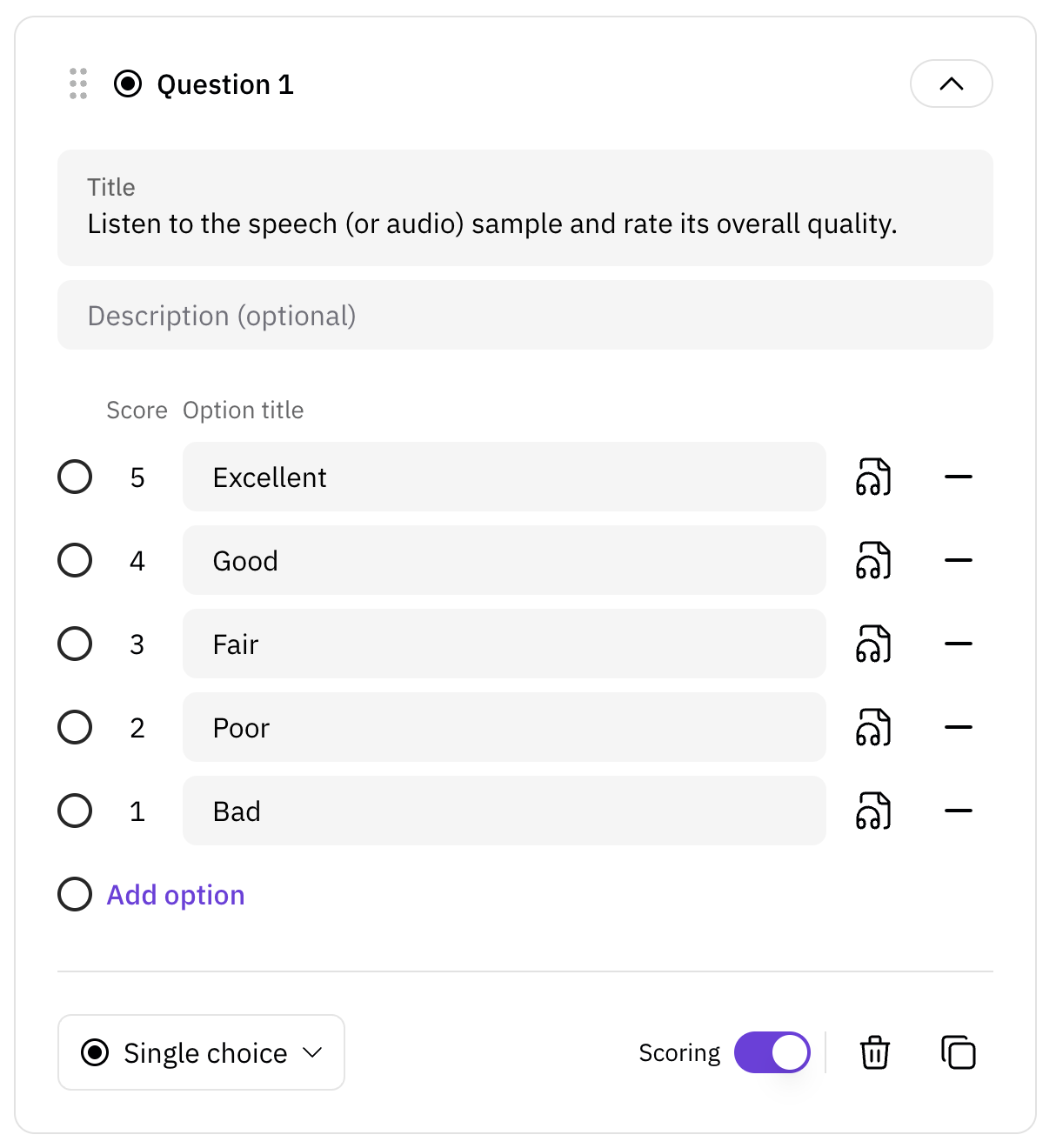import podonos
import os
from podonos import *
from pydub import AudioSegment
from pydub.generators import WhiteNoise
def add_noise(sound, noise_level=0.005):
noise = WhiteNoise().to_audio_segment(duration=len(sound))
noisy_sound = sound.overlay(noise)
return noisy_sound
client = podonos.init()
etor = client.create_evaluator(
name="Quality evaluation with/without additive noise",
desc="Noise is added to the clean audio",
type="QMOS", lan="de-de", num_eval=7)
src_folder = "./src"
dst_folder = "./dst"
files = os.listdir(src_folder)
for name in files:
noisy_sound = add_noise(name)
noisy_sound.export(os.path.join(dst_folder, name), format="wav")
# Add files
etor.add_file(File(path=os.path.join(src_folder, name), model_tag='Original',
tags=["original"]))
etor.add_file(File(path=os.path.join(dst_folder, name), model_tag='Noisy',
tags=["level 0.005"]))
etor.close()


